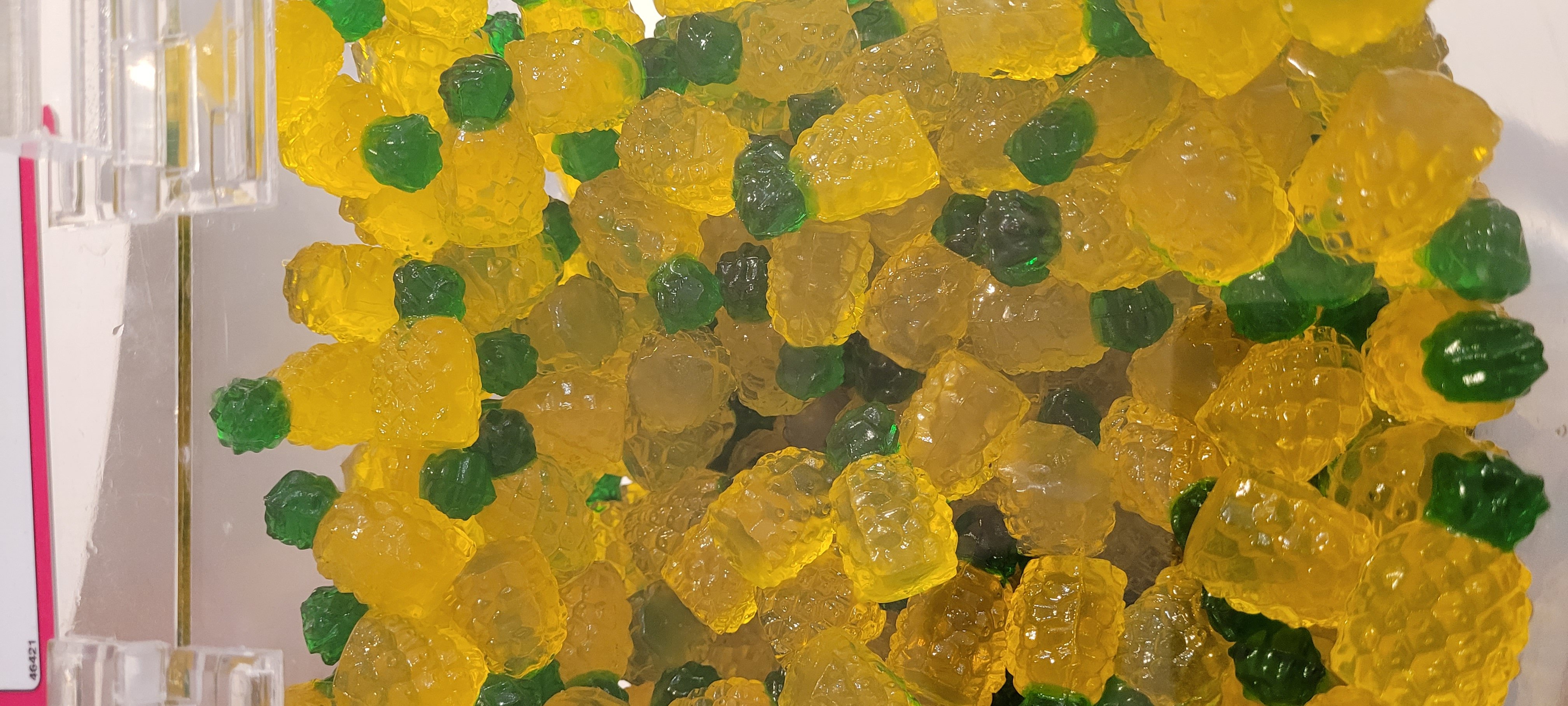cross-posted from: https://lemmy.ml/post/13060811
It doesn’t disprove the “unadaptable” claim about the book.
I liked the film, am a fan of the book, and this isn’t a “book was better, they should have just stuck to the book” opinion.
It’s more that watching it (and I’d be curious to see if this feeling changes on re-watch or seeing it back-to-back with pt 1) I felt Denis struggle to achieve everything he was aiming for while controlling rhythm and momentum in a compelling way that captures the spirit of the story and its world.
General spoilers for the story if you haven't read the book and some minor ones about the film
Watching it, I thought the middle section up to Paul drinking the water of life was struggling to not be slow but also convey a sense of gravity and alien spookiness. IMO, it failed at both. The final fight with Routha, without out any sense of Paul’s special KH perspective, feels like an anti-climax. Ditto with the ploy of threatening to destroy the spice not actually working as the houses don’t accept his ascension. The lack of any substantial passage of time undermines the feeling of growth and settling into fremen culture that was sitting right there for Dennis. While the whole messianic issue is given a good amount of attention, no doubt in preparation for pt 3, Paul as KH and the particular struggle he goes through is not.
And to be a tad more superficial, the whole IR sequence on the Geidi Prime (Harkonnen home planet) felt rather distracting and unnecessary … the alien/HR Giger -esque aesthetic of the Harkonnens was plenty of creepiness while jumping from visual to IR and back to visual spectra felt disjointed and distracting. I would have preferred a clear look at some Giger-ish art design than the IR look.
Like I said, I liked it. But I could see cracks in the adaptation and with the film being as good as it is I can’t help but wonder what could have been.
I wasn’t going to post this until I watched this interview with Denis on what his influences were for pt 2. Good interview. You’ll find Lawrence of Arabia in his list, which makes a lot of sense. What prompted me here though was that he cited the Road Runner cartoon, where he admitted to wanting to improve on Dune pt 1, specifically to do better at rhythm and momentum, and that he felt like taking notes from Chuck Jones set off a grenade for him. I feel like that’s what I’m picking up on … he clearly was after some sort of forceful pacing … while what I felt was that the film/story wasn’t given the time to breath it needed.
I’d even go so far as to suggest that his statement in the interview kinda confirms my thought, that he really wasn’t quite sure how to manage rhythm and momentum for pt 2, which of the two parts does a lot of the heavy lifting in terms of plot (with pt 1 doing world building and succeeding wonderfully IMO) … and was searching for some inspiration which, IMO, didn’t quite land.
For me, I keep coming back to LotR and its film adaptation, an importance reference/standard for this IMO, where I think everyone would agree that the third film, RotK, really captured the spirit and feeling of the book/story (yes even the multiple endings) and nailed the rhythm and momentum for that story.
With Dune pt 2, I’ve come away not feeling like I watched the story of Paul Atreides. It’s something close, frustratingly so for me ATM, to the point where I’m inclined to re-read the book to kinda look for this sense I have in my mind. By contrast, the LotR films never made me want to re-read the books straight after, as I was happy with them as their own experience of the story.
Thank you for sharing here!
Overall, I enjoyed the hell out of part 2.
Despite the differences from the source material, I feel that DV delivered the best adaptation of the book that I’ve seen. The only thing that I’ll ever see that’s better, will be the extended director’s cut.
Regarding Giedi Prime:
That was fucking gorgeous. It’s the perfect answer to the brief, Show us who and what the Harkonnens are, deep down where it counts. All of it. Grotesque displays of wealth and power. Sadistic cruelty. Ruthlessness and cunning. Ambition. Plans within plans. Literally laid out in black and white.
I would have preferred something closer to the book, as far as the entire royal Court ending was concerned, and specifically the fight between Paul and Feyd Rautha. I don’t think that it gave Feyd enough credit for how clever and cunning he is in the book. Specifically, the book version really fucking drives home the Plans Within Plans element.
Visually, I could eat every minute of those guerrilla warfare Harvester ambush scenes.
If I had the budget, I would have given DV the budget to do this story his way, but with eight to ten ninety minute episodes on Netflix. That would be excessive probably, but it’s my budget, so do the appendices too!
I’m not claiming it should have been closer to the book. Just that it fell short as an adaptation where modifications from the book are acceptable if they make a better adaptation.
I’ve got no problem with black and white. The IR stuff was different and I found it distracting.
Your comment about wanting a Netflix series is basically in line with what I’m saying. It needed more space to breath. And a Game of thrones approach could have done wonders by comparison.
Maybe I’m slow. What is IR?
InfraRed. There’s a sequence in the film shot in infrared rather than normal visual spectrum light. As there’s no colour in infrared it’s effectively black and white but looks different. It’s pretty obvious when it happens in the film.
I was starting to think that’s what you meant after I sent the message.
Visually, i think that drives home the absence of warmth and humanity in House Harkonnen.
Oh I very much like the look of it, don’t get me wrong. And the idea too, as you put it. The issue I had was that the film jumped from IR for the outdoor scenes then back to visual for the indoor scenes. Which makes scientific sense if the sun light is only in IR, but I found it distracting to jump aesthetic so drastically like that for the same world and people/characters, especially, as I said, when it’s the art/design aesthetic of the harkonnens that I liked much more.
I also thought the lack of any substantial passage of time with the fremens was an issue. As I’ve already written in some other threads i think it is a consequence of wanting to keep Ali unborn rather than casting a child actor to play a difficult role (and having that influence who you cast later when you need a more grown up Alia).
Once you make that decision the time frame naturally gets restricted to under 9 months, since you have to I have Jessica pregnant from the beginning.
I very much enjoyed the Geidi Prime aesthetics, but I can see how one can find it to be more style than necessary substance. Now that you mention it, I’d also definitely be interested how it would have looked with a more Alien like Giger-ish design. But maybe
Regarding the end with the great houses and spice, I wonder what we will see in part 3. I think the importance of spice fell a bit under the table, since we didn’t have the spacing guild being a bigger part. So I’m wondering if that was simply saved for part 3 to take out a story line from an already relatively packed movie. As were others such as jamis wife/children or paul+chani’s first child Leto that gets killed (also a result of the cut timeframe).
I think the importance of spice fell a bit under the table, since we didn’t have the spacing guild being a bigger part.
Yea this is something I didn’t mention but I think might be a pretty objective flaw for all the non-book readers. Those of us who know the book know how big a deal it is. But in the film universe, I’m not sure the gravity of Paul’s move (re threatening to destroy it) and the whole situation on Arrakis (the emperor came personally to fix it) is in the universe. Maybe the emperor being involved conveyed it, dunno, but it’s also pretty central to the “bad messiah” plot that Denis has (thankfully) emphasised, as it underlines how all of these things have fallen into Paul’s lap, including being the KH and the Fremen that allow him to become a messiah. Being on left for dead and surviving on the spice planet is an essential element of that.
Actually thinking about it again we are being told at the very start of the first movie (with a voice over exposition) that spice is the most valuable substance in the universe, that the spacing guild uses it and that without it interstellar travel is impossible. So in a way the viewer gets all the information needed in the first part.
Maybe the fact that irritated me was more that we don’t get to understand that the spacing guild is basically a completely seperate faction and all the dynamics that come with it?
I guess we have to wait how he resolves it in the third movie.
Yea, but that’s a long at the top of a previous film. Which is part of the part of the ending in the book, Paul wins the universe by simply threatening the spice, which surely proves its importance. Something else that movie skips is how many people are basically spice addicts, who clearly do not want to lose it. So yea, it’s there, but as you say, having the spicing guild there saying Paul can be the emperor so long as the spice continues to flow really gets the message across (that a universe addicted to a commodity might just be problematic).




